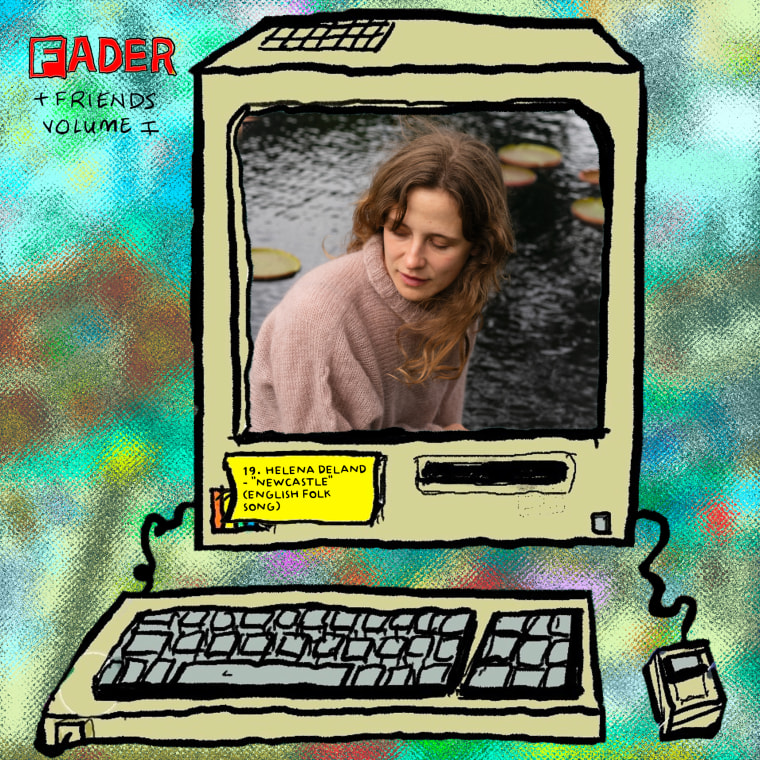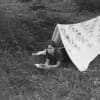
The FADER's transgender charity covers compilation FADER & Friends Volume 1 is out now, available exclusively on Bandcamp until December 1, 2023. 100% of the proceeds go towards the Transgender Law Center, Mermaids, and Rainbow Railroad. Throughout the month of November, we're speaking to the artists who contributed to the 44-song collection about the songs they covered.
In the spirit of her excellent new album Goodnight Summerland, Helena Deland has shared a new rendition of "Newcastle," a traditional English folk song. "Newcastle" has origins dating back to the 17th century, but in Deland's hands, the Montreal-based singer-songwriter makes it feel contemporary, even urgent. Its muted and stripped-down quality feels like a gentle invitation to take a seat on a comfortable pillow, take some deep breaths, and recharge.
Listen to the song below and buy the full album on Bandcamp. Scroll down to read Helena Deland's thoughts on the original song and her cover.
What's your first memory of this song?
I heard Lankum's cover of "Newcastle" last summer on Maria Somerville's NTS show Early Bird. I looked it up and found that "this romantic and tender song is set to one of the loveliest English dance tunes (also known as 'Newcastle') from Playford’s English Dancing Master, published in 1651".
Why did you decide to record it as your cover?
I chose to record "Newcastle" because it's a traditional piece that has survived through oral history, being passed down and reinterpreted over the years. I collaborated with my friend Eugénie Jobin-Tremblay, known for her project Ambroise, as we often sing together in a small DIY choir where we focus on rounds and traditional songs. This project felt like a natural extension of our shared repertoire.
Lankum, a band that also covered this song, learned it from Seán Fitzgerald of The Deadlians, who, in turn, was taught by his mother. It's a testament to the beauty of traditional songs being shared and sung across generations, a practice that's becoming less common. Singing such songs, whether together or to each other, connects us to our musical heritage.
What does this song mean to you personally?
This song is special to me because the lyrics touch on universal themes like heartbreak, longing, and denial, though they are set in the historical context of the UK in the 1600s. The juxtaposition is a reminder of our shared humanity throughout the ages. I find it fascinating that the same feelings and experiences that people had centuries ago are still relevant and relatable today. It's a powerful testament to the enduring nature of human emotions and the ability of music to bridge the gap between different eras.
What's another song you'd love to cover and why?
I love learning covers. I am currently working on Barbara's "Chapeau bas". She wonders whether it is god or the devil who created the difficult splendors of her life. I think it's a beautiful idea, and the song itself is a fun challenge.


